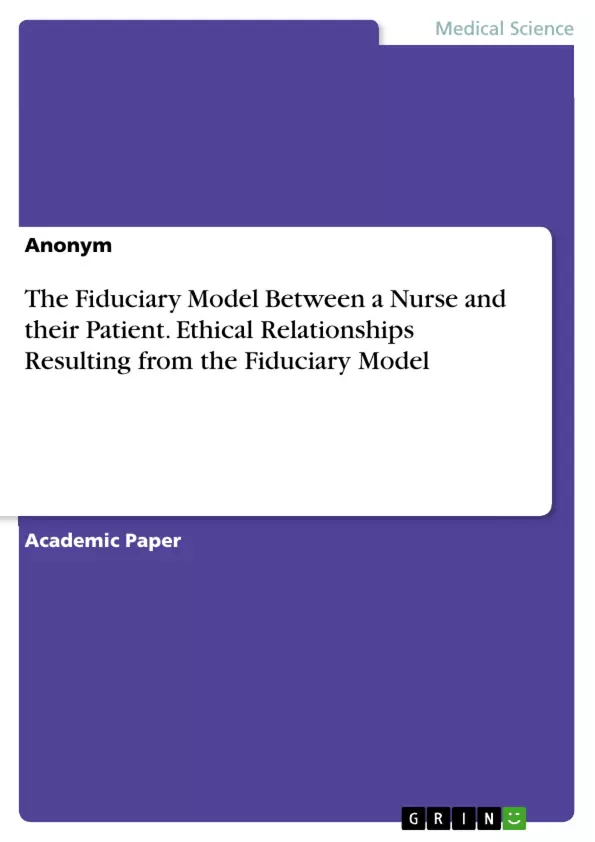The alliance between the health practitioner and the patient has significant healing power. The collaboration between the nurse and patient ensures that the patient’s quality of life and their health condition is significantly improved. But this therapeutic relationship between the nurse and the patient requires specific obligations on the health practitioner. These obligations have evolved over the years. In the past, the relationship paradigm involved the absolute dependence of the patient on the health service provider and their professional authority. A paternalistic relationship model developed since the patient believed they would derive benefit from the health practitioner. As a consequence, the preferences of the patient were mostly never elicited, and the health practitioner would override them if they somehow conflicted with the health service provider’s convictions regarding what kind of care to be given.
However, as the profession grew in the latter half of the 20th century, the relationship between the patient and the nurse shifted to a more shared decision-making paradigm. This shift acknowledged the autonomy of the patient and their right to have differing standpoints, their right to choose and they ability to make decisions based on what they believe in or value. Patients were given the opportunity to weigh the alternatives and select the one that they derive the most value.
On that note, this paper will try to discuss the tenets of the fiduciary relationship between the patient and the health service provider. Subsequently, the essay will focus on what ethical responsibilities are embedded in such a relationship, in particular on the part of the nurses, and why they are considered important.
Table of Contents
- Introduction
- Fiduciary Relationship between Nurse and Patient
- Managed Care Organizations
- Ethical Responsibilities of the Nurse and their Importance
- Conclusion
- References
Objectives and Key Themes
This paper explores the fiduciary relationship between nurses and patients, examining the ethical responsibilities inherent in this relationship and their significance. It discusses the historical evolution of this relationship, acknowledging the shift towards shared decision-making between healthcare providers and patients.
- The concept of a fiduciary relationship in healthcare.
- The impact of managed care organizations on the nurse-patient relationship.
- Key ethical responsibilities of nurses within the fiduciary model.
- The importance of these ethical responsibilities for patient well-being.
- The implications of shared decision-making for patient autonomy.
Chapter Summaries
- Introduction: This chapter introduces the concept of the nurse-patient relationship and its evolution from a paternalistic model to a more collaborative one. It highlights the importance of trust and open communication in this relationship.
- Fiduciary Relationship between Nurse and Patient: This chapter defines the fiduciary relationship and its significance in healthcare. It emphasizes the ethical obligation of nurses to prioritize the well-being of their patients above personal interests.
- Managed Care Organizations: This chapter examines the impact of managed care organizations on the nurse-patient relationship. It discusses the shift in power dynamics as insurance companies become involved in healthcare decision-making.
Keywords
This work focuses on the key concepts of fiduciary relationship, patient autonomy, ethical responsibilities, nurse-patient communication, managed care, and shared decision-making.
- Arbeit zitieren
- Anonym (Autor:in), 2017, The Fiduciary Model Between a Nurse and their Patient. Ethical Relationships Resulting from the Fiduciary Model, München, GRIN Verlag, https://www.hausarbeiten.de/document/1253011


